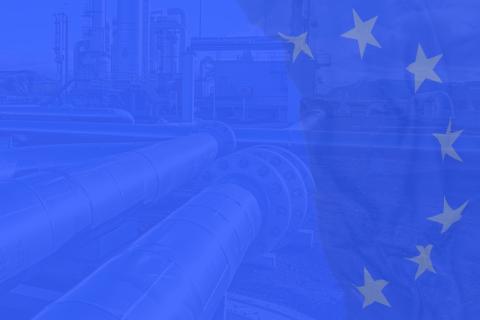Doosan Heavy: Time for a forensic audit
Download Full Report
Key Findings
The first red flag for Doosan Heavy is that over the past five years, the company has had three different auditors: Ernst & Young Han Young (2014-2015), Deloitte Korea (2016), and now Samjong KPMG (2017-2018).
Although Doosan Heavy’s high-level corporate messaging has been almost consistently optimistic with frequent references to its nascent efforts to gain a foothold in clean power technologies, its financial health has remained inextricably linked to a high-risk pipeline of domestic and developing market fossil fuel projects.
The damage to Doosan Heavy’s financials has been significant. The company has not reported a profit since 2013.
Executive Summary
The stock market appears to have lost faith in Doosan Heavy.
The past five years have not been easy for South Korea’s KOSPI index, but they have been dire for Doosan Heavy shareholders. While the KOSPI has been lacklustre, falling 4.0%, Doosan Heavy has fallen 74.8% and now has a market capitalization of just USD 1.0 billion.
What’s the fundamental problem?
South Korea’s leading power equipment company appears to have misread the direction of power markets over the past three years as the global energy transition triggered a reckoning for the heavy equipment industry.
Like many national champions in the power sector, the company has lost much of its domestic and global growth potential. For companies like Doosan Heavy which have focused on traditional nuclear and fossil fuel technology, it has resulted in a dramatic rerating as the market has shrunk and competition with North Asian rivals has reached new heights. For financial analysts, the challenge now is to determine whether Doosan Heavy’s core business can meet its financial and business obligations.
To buy time, Doosan Heavy has been racing to grab projects in competitive overseas markets, hoping to gain an edge from access to concessionary loans from the Export-Import Bank of Korea (KEXIM) and Korea Development Bank (KDB), government-backed lenders. This is a common but financially risky strategy for all concerned. These are often low-margin carbon-heavy projects that are unlikely to plug the holes in Doosan’s cash flow. Moreover, Korea’s subsidized debt often does little more than de-risk initial approvals for controversial projects that sometimes struggle to progress due to changes in local market conditions. These delays have the potential to damage Doosan’s cash flow and credibility, as well as the banks that are assuming it is business as usual in global power markets.
Unfortunately for Doosan, their strategy missteps have created financial risks that can no longer be hidden.
IEEFA’s review of Doosan Heavy’s 2018 and first half 2019 financial accounts confirms that the company’s accounts come with material red flags that raise important questions about the company’s financial and strategic challenges. The careful wording of the audited accounts signals that the company may be close to the boundaries of international accounting standards. This should be of concern to South Korea’s top financial regulator, the Financial Supervisory Service (FSS) as well as leading domestic and global lenders.
As investors in the Korean market are well aware, auditing scandals have penalized Korean investors over the past two decades and recent problems have encouraged the Financial Services Commission (FSC) and the Financial Supervisory Service (FSS) to renew their vigilance. Added caution from the credit rating agencies who rate the bonds for investors should also be encouraged.
Based on IEEFA's review, Doosan Heavy’s 2018 audited financial accounts offer up at least 10 red flags. This view is validated by an analysis of the more recent, but unaudited, first half 2019 results. Taken together, Doosan Heavy’s financial results raise important fiduciary questions not just for Doosan Heavy shareholders, but also for the bankers, investors, and counter-parties who may be asked to untangle the company’s finances.
Press release: Widespread adoption of carbon capture, utilization and storage technologies in South East Asia remains highly unlikely
Please view full report PDF for references and sources.















